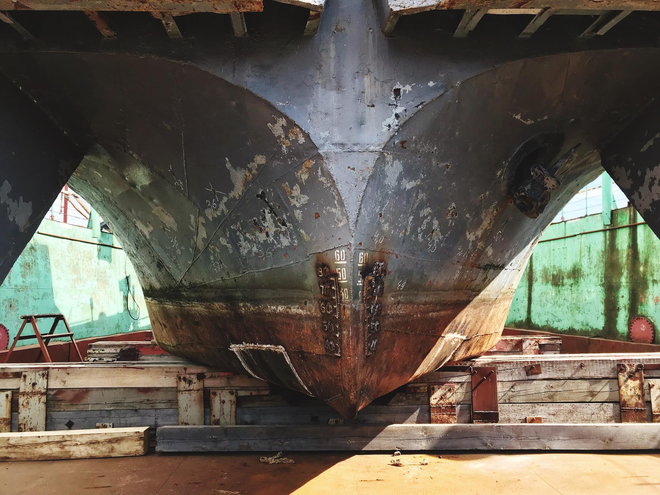The African and Asian continents are separated by the Red Sea. It is a significant body of water for tourism, international trade, and the abundant and varied marine life it sustains. The Gulf of Aden and the Bal el Mandeb Strait connect the Red Sea, an inlet of the Indian Ocean, to the south. To the north of it are the Sinai Peninsula, the Gulf of Suez, and the Aqaba Gulf. Together with captivating beaches that draw tourists from all over the world, the area is home to numerous significant ports and harbours that handle most of the world's freight. India's sea traffic passes via the Red Sea on a busy lane; thus, any stoppage might have serious repercussions.
The Red Sea is currently going through a crisis where the Houthis, Rebels from Yemen have launched aerial attacks against dozens of merchant and Naval vessels passing through the Red Sea. Initially they attacked Israeli ship claiming as an act of solidarity supporting Gaza, Palestine However they soon began to attack other merchant naval vessels from other countries too.
Thirty percent of the world's container trade passes via the Red Sea, which is currently experiencing an unprecedented shipping crisis. There has been a notable decrease in marine activity due to the attacks on commercial vessels brought on by the recent Middle East crisis. By the end of March 2024, traffic through the vital Suez Canal and Bab El-Mandeb Strait had decreased by half, whereas navigation on the alternate route via the Cape of Good Hope route had increased by 100%.
This has enormous effects on the maritime industry, the environment, and the global economy. Cargo and tanker travel distances have grown by up to 53% because of the longer routes that are now required. Because more gasoline is burned during this increased travel, CO2 emissions have grown as a result. From an economic perspective, the crisis has led to soaring freight and shipping insurance costs, aggravating inflation and undermining the local and international maritime sectors. Numerous shipping firms rerouted their vessels to avoid the Cape of Good Hope. Businesses with low inventory suffered as the average delivery time increase was of 10 days or more.
The Red Sea blockage affects global trade and energy supply. Increased shipping costs and traffic disruptions affecting Indian economy. In the first 2 months of 2024, Suez Canal trade dropped by 50% from a year earlier while trade through the Panama Canal fell by 32%, disrupting supply chains and distorting key macroeconomics indicators. The Red Sea crisis Could temporarily hamper some supply chains in affected countries and cause upward pressure on inflation due to higher shipping costs. Red sea is a busy corrido for India sea- trade and any disruption could have significant consequences. Slowing demand from Europe will impact India's labour-intensive sectors and Insurance cost has shot up for ships.
For Indian exporters, one of the biggest worries is the unpredictable and delayed shipment timetables. Exporters are finding it more and more difficult to fulfil their delivery obligations because of major delays caused by the closure of important shipping lanes and the necessity to reroute cargo. Their relationships with foreign buyers are being strained as a result, and they are becoming more and more irritated with the supply chain's unpredictability.
The operating capital of Indian exporters has been severely strained by the disruptions, especially for the smaller companies. SME exporters were under pressure from delayed shipments to explore for more costly alternatives, such air freight, which put further burden on their working capital. Many SMEs are having difficulty keeping up with their cash flow due to delayed payments from foreign purchasers and the necessity to find alternate, frequently more expensive transportation routes.
The Red Sea is a vital artery for the transport of oil and gas. Disruption threatens energy security, could impact fuel prices and industries that rely on stable energy supplies. This adds a level of uncertainty to an already volatile global energy market.
Products that require quick delivery, such as fresh fruits and vegetables or certain medicines, are likely to be in short supply. Delays and shortages could lead to higher food prices, fuelling inflation, The Straits Times reported.
The impact of this financial strain may be extensive, affecting not just their capacity to complete orders but also their overall viability as a corporation. In addition, the Red Sea issue has brought attention to how vulnerable smaller Indian exporters' connections with foreign consumers are. These SMEs frequently need to accept longer payment terms or even concessions that put further burden on their working capital because they have less negotiating leverage.
The right abrasive cleans hulls efficiently, reduces corrosion and…
Nov 24, 2025

Industries are switching to garnet abrasives for superior cutting, eco-friendliness,…
Sep 25, 2025

Garnet abrasive keeps surfaces clean, cuts dust and makes construction…
Sep 23, 2025

Garnet ensures smoother cuts, reduced costs, eco-friendly practices, and high-quality…
Sep 19, 2025

Shipbuilding endures saltwater, humidity, and stress, leading to corrosion. Regular…
Aug 22, 2025

Operations Division (+91 891 2572194)
Sales Division (+91 984 698 4668)
Sales Division (+91 781 596 1831)